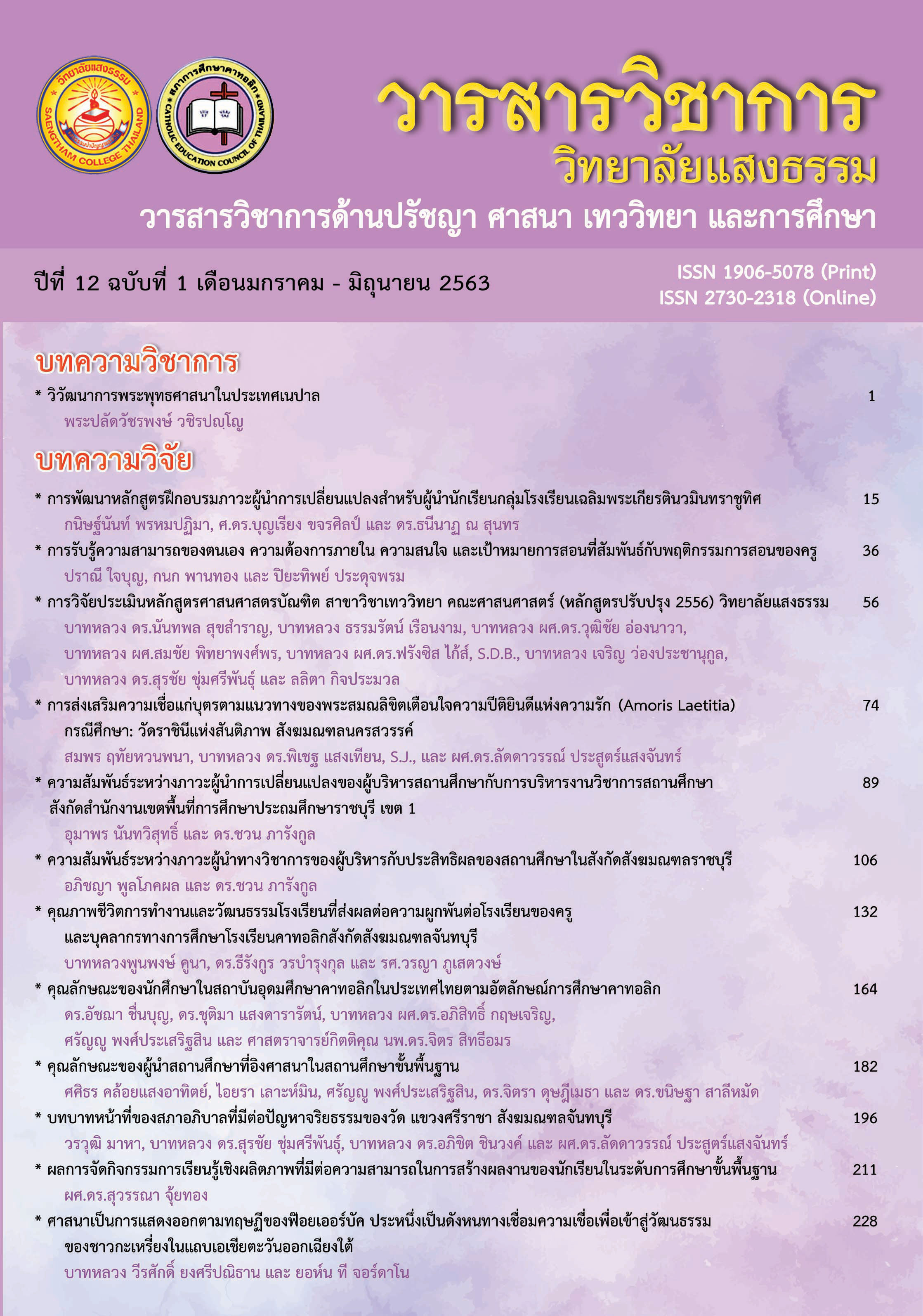On Feuerbach's Idea of Religious Projection as a Way of Approaching Religious Inculturation among the Karen of South East Asia.
Main Article Content
Abstract
Ludwig Feuerbach is famous for stating that religion is a projection of man. This was a great influence on such writers as Marx and Freud who view religion as an obstacle to progress or a mere illusion which needs to be replaced by reason. But Feuerbach’s ideas can be seen in a more positive way; as recognition of the importance of local culture and the meaning of religion within that culture. After a brief examination of the work of two commenters Wartofsky and Harvey, Feuerbach’s theory will be evaluated in a more positive light. This article will then apply these insights concerning religious projection to Karen culture in South East Asia and the way in which Christianity is understood in that cultural context. The article will also show that the Karen appropriation of Christianity is rooted in ecological concerns. Finally, it will show that the connection between traditional Karen faith and Christianity is important for creating a balance between two dimensions of reality – the material and the mysterious.
Article Details
- The academic and research articles, as well as the content and opinions expressed therein, published in Saengtham College Journal are solely the responsibility of the respective author(s).
- Articles published in Saengtham College Journal are the property of Saengtham College. Reproduction, modification, or dissemination of all or part of the content in any form without written permission from Saengtham College is prohibited.
- Articles published in Saengtham College Journal are protected under the Copyright Act.
References
Dias, Saturnino. (2004). Indigenous People in Asia and Challenges of the Future. Goa: Claretian Publication.
Diocesan Social Action Centre (DISAC) and Research and Training Centre for ReligioCultural Communities (RTRC). (2019). Historical Documentation. ChiangMai: Wanida Karnpim Limited Partnership.
Feuerbach, Ludwig. (1841). The Essence of Christianity, Trans. George Eliot, with an introductory essay by Karl Barth and foreword by H. Richard Niebuhr, New York: Harper & Row.
Feuerbach, Ludwig. (1843), (1966). Principles of the Philosophy of the Future, Trans. And with an introduction by Manfred Vogel, library of Liberal Art, Indianapolis: Bobbs-Merrill.
Feuerbach, Ludwig. (1851). Lecture on the Essence of Religion, Translated by Ralph Mannheim in 1967. Harper & Row Publisher.
Feuerbach, Ludwig. (1830). Thoughts on Death and Immortality: from the Papers of a Thinker, along with an Appendix of Theological-Satirical Epigram, Edited by One of His Friends. Translated with introduction and notes by James A. Massey Berkeley: University of California Press.
Fung, Jojo. (2017). Creation is Spirited & Sacred; An Asian Indigenous Mysticism of Sacred Sustainability. Philippines: Claretian Communications Foundation.
Harvey, Van A. (1995). Feuerbach and the interpretation of religion. Cambridge University Press.
Harvey, Van A. (Jan, 1998). “Feuerbach on Luther’s Doctrine of revelation”; An Essay in Honor of Brian Gerrish in the Journal of Religion. Vol.78, No.1.
Marshall, Harry I. (1922). The Karen people of Burma: A Study in Anthropology and Ethology, Columbus: Ohio State University.
Pieris, Aloysius. (1988). An Asian Theology of Liberation. New York: Orbis Books.
Sierksma, Fokke. (1990), Projection and Religion: An Anthropological and Psychological Study of the Phenomeno of Projection in the Various Religions, translated by Jacob Faber, foreword by Lee W. Bailey, Ann Arbor, Mich: UMI Books on Demand.
Wartofsky, Max W. (1977). Feuerbach. Cambridge University Press.
Yibmuntasiri, Phruk. (1997). Using land for multiplying fruitful in sustainable way of PgazK’nyau, Chiang Mai: Social Network of Chiang Mai Diocese.


